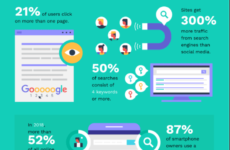It is essential for SEO to monitor its page speed as it has been known to be a ranking factor on desktop searches. Today, most of the web searches are done on mobile phones, for this reason, optimizing the page load speed has become an important thing to make your website rank.

However, it was not so important until Google officially introduced page speed as a ranking factor for mobile searches too with the Google speed update. So, how do you know if your website page speed is okay? To navigate this, there are some tools available that will help you to measure page speed.
SEO Plays a Significant Role in Optimizing Web Page Speed
You must know that the search engines are a business entity in themselves. If they start showing irrelevant results, they will lose eventually. When someone searches on Google for you, it is essential that your web page display quickly as it is a part of good SEO practice. So, learning how to do SEO is crucial. Moreover, SEO also improves the online ranking of the business.
Thinking about the user experience, When you Google a website, won’t you want it to show up fast and throw up relevant results so you would want to stay on it for long? Moreover, if your site has a high bounce rate, it reflects search engines that the result was irrelevant to users; and also that your site is not up to the user’s expectations.
Fix Cache Enabling
If you do allow caching on it can also cut down on page load speed by asking users to save files in your website. Usually, in your web surfing experience, a browser will have to download all the web files attached to a specific website for it to load and display correctly. And this takes a little time to complete.
Then, if that same user is about to revisit the site, the browser would have to re-download the files. However, by enabling caching, some of those files would be stored locally on the user’s desktop, which would cut down on some load time.
Fix Any Template Based Elements First
Before you go through into any individual elements, you want to make sure you’ve addressed any major issues with your website template first. Fixing these could solve any overarching issues with the fundamentals of your site (and if you’re lucky, get your site up and loading fast).
Remove Redirects
Sometimes, redirects are hard to remove. You can use them to show that a specific page has moved or to reserve multiple same domain names. However, there are inessential redirects. If there are five redirects between a homepage and its mobile version, you can perhaps optimize redirects.
For instance, if you are looking for a particular place, you ask a passerby for directions. However, when you follow the directions you get to some other person who gives you a different layout. This repeats multiple times. It is Annoying anyway!
That’s the same way redirects are! All the redirecting ads hinder the load times. Avoid redirects and use them as carefully as possible if you want your site to be fast.
Use SEO optimization tools:
There are various online and offline tools that can help improve page speed and aids in reducing the load time. Just pick the one you that you think will go perfectly with your web page and enhance the page loading speed.
Conclusion
The faster page speed of its website means a better user experience, better rankings, and not to mention more conversions and revenue.
So, make sure you check out your plan thoroughly for increasing your page speed and start implementing today.




